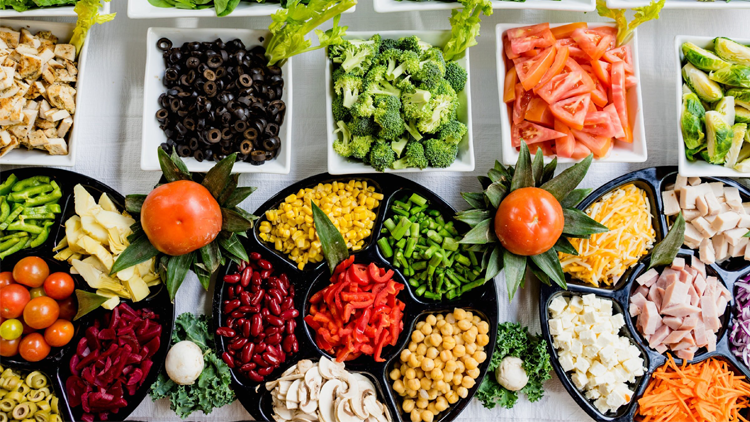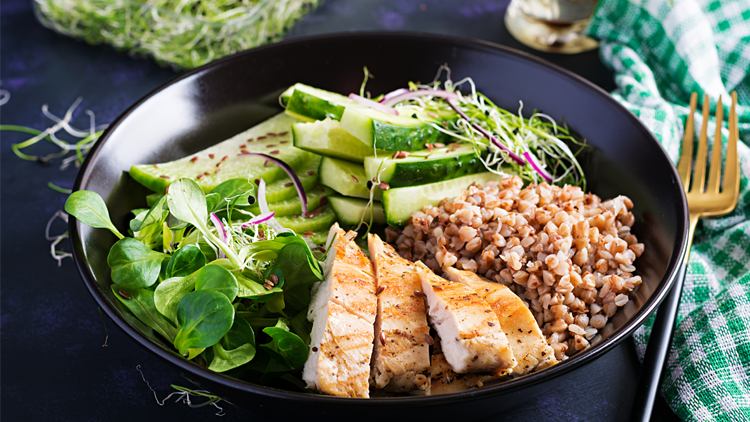y.

Introduction
Eating healthy on a budget is crucial for your well-being and financial balance. Despite the challenges of maintaining a nutritious diet while on a tight budget, it is entirely achievable with the right approach and mindset. In this article, we’ll delve into seven practical tips that empower students, young professionals, and budget-conscious families to make wholesome choices without straining their finances. By implementing these strategies, you can prioritize your health without breaking the bank.
Meal Planning: The Key to Success
One of the most effective ways to eat healthy on a budget is through meal planning. By taking the time to plan your meals, you can avoid impulsive and costly food choices. Create a weekly meal plan and make a detailed grocery list. Consider incorporating inexpensive ingredients like grains, legumes, and seasonal fruits and vegetables. Planning your meals also reduces food waste and ensures you use up ingredients efficiently.
Shop Smart and Compare Prices
When grocery shopping, make it a habit to compare prices and look for the best deals. Check out different stores in your area to find where you can get the most value for your money. Consider purchasing generic or store brands, as they often offer similar quality at a lower cost. Additionally, buying in bulk can save you money in the long run. Look for sales and discounts on staple items and non-perishables to stock up on essentials.
Embrace Seasonal Produce
Fresh fruits and vegetables are essential for a healthy diet but can sometimes be expensive. To eat healthy on a budget, focus on seasonal produce. Seasonal fruits and vegetables are more affordable and tend to be fresher and more flavorful. Visit local farmers’ markets or community-supported agriculture (CSA) programs to find cheap, locally sourced produce. You can also consider growing herbs and vegetables if you have space for a small garden.
Cook in Bulk and Freeze Portions
Cooking meals in large batches is a fantastic way to save both time and money. Prepare a big batch of your favorite healthy recipes and portion them into individual servings. Freeze the extra portions for later use, making it convenient to prepare nutritious meals when you’re short on time. This approach also minimizes food waste, as you can use ingredients efficiently while enjoying various homemade meals throughout the week.
Prioritize Whole Foods and Avoid Processed Items
When eating healthy on a budget, it’s essential to avoid processed foods, which tend to be pricier and less nutritious than whole foods. Despite their convenience, processed foods can negatively impact both your finances and health over time. Instead, prioritize whole foods such as grains, legumes, lean proteins, and fresh produce. Not only are these options more affordable, but they also offer superior nutritional value. Embrace your creativity in the kitchen by experimenting with diverse recipes and flavors using whole, unprocessed ingredients. Your wallet and well-being will thank you for it.
Optimize Leftovers and Reduce Food Waste
Reducing food waste is not only good for the environment but also beneficial for your budget. Instead of throwing away leftovers, find ways to repurpose them into new meals. Get creative by transforming leftover roasted vegetables into a hearty soup or using cooked chicken to make a delicious salad. You stretch your ingredients and minimize unnecessary expenses by maximizing the use of leftovers.

Stay Hydrated and Limit Beverages
Staying hydrated is essential for maintaining good health, but sugary beverages can quickly increase costs. Opt for water as your primary beverage and carry a reusable water bottle. Not only is water free, but it also keeps you hydrated without any added calories. If you crave flavor, infuse your water with slices of lemon, cucumber, or berries. Limiting your intake of sugary drinks like soda and juice will not only save you money but also contribute to a healthier lifestyle.
Frequently Asked Questions (FAQs)
Q: Is it possible to eat healthy on a tight budget?
Yes, it is possible to eat healthy on a tight budget. You can maintain a nutritious diet without overspending by planning your meals, shopping smart, prioritizing whole foods, and reducing food waste.
Q: Are organic foods necessary for a healthy diet?
While organic foods can be beneficial, they tend to be more expensive. It’s not necessary to exclusively buy organic produce to eat healthy. Focus on incorporating a variety of fruits, vegetables, whole grains, and lean proteins into your diet, regardless of whether they are organic or conventionally grown.
Q: How can I make the most of my grocery budget?
To make the most of your grocery budget, plan your meals, compare prices, buy in bulk, and prioritize affordable, whole foods. Additionally, cooking in bulk, repurposing leftovers, and staying hydrated with water are effective strategies for eating healthy on a budget.
Q: Are frozen fruits and vegetables less nutritious than fresh ones?
Frozen fruits and vegetables are a convenient and budget-friendly option. In many cases, they are just as nutritious as fresh produce because they are often picked and frozen at their peak ripeness. They can be a great alternative when fresh options are not readily available or affordable.
Q: Can I still eat out while following a budget-friendly, healthy diet?
Eating out can be challenging when sticking to a budget, but it’s not impossible. Look for affordable options, choose healthier restaurants, and consider sharing meals or ordering smaller portions. Be mindful of portion sizes and choose dishes with plenty of vegetables, whole grains, and lean proteins.
Q: What are some cost-effective protein sources for a healthy diet?
Inexpensive protein sources include beans, lentils, chickpeas, eggs, tofu, and canned fish like tuna or salmon. These options provide essential nutrients while being budget-friendly alternatives to more expensive meats and seafood.
Conclusion
Eating healthy on a budget doesn’t have to be a daunting task. Implementing these seven tips allows you to prioritize your health without straining your finances. Remember to plan your meals, shop smart, embrace seasonal produce, cook in bulk, prioritize whole foods, optimize leftovers, and stay hydrated. With a bit of creativity and strategic thinking, you can enjoy a nutritious diet while saving money. So, take charge of your health and budget today!


















